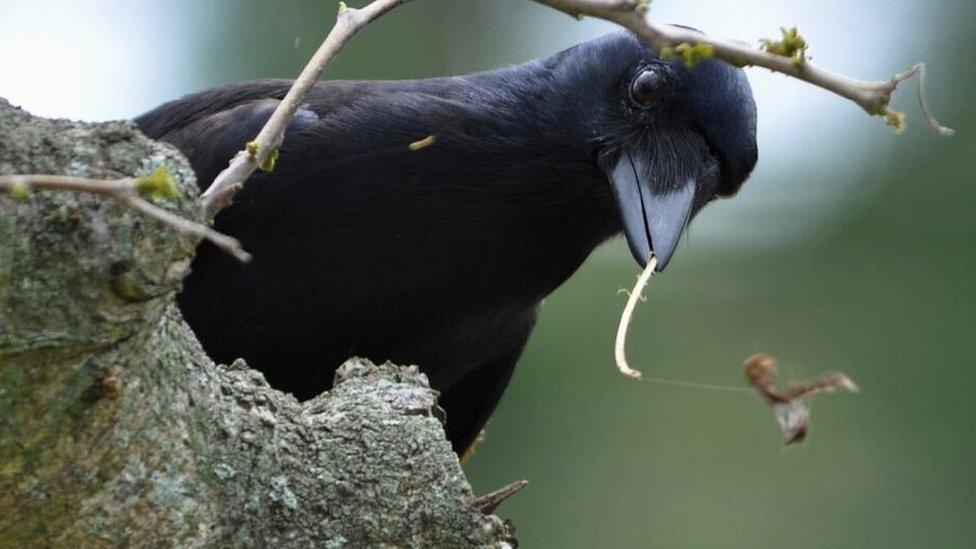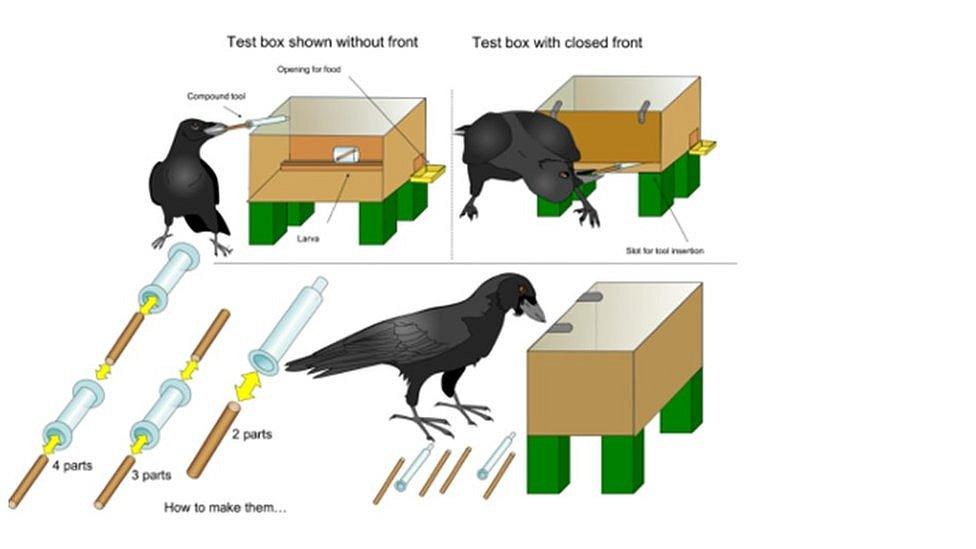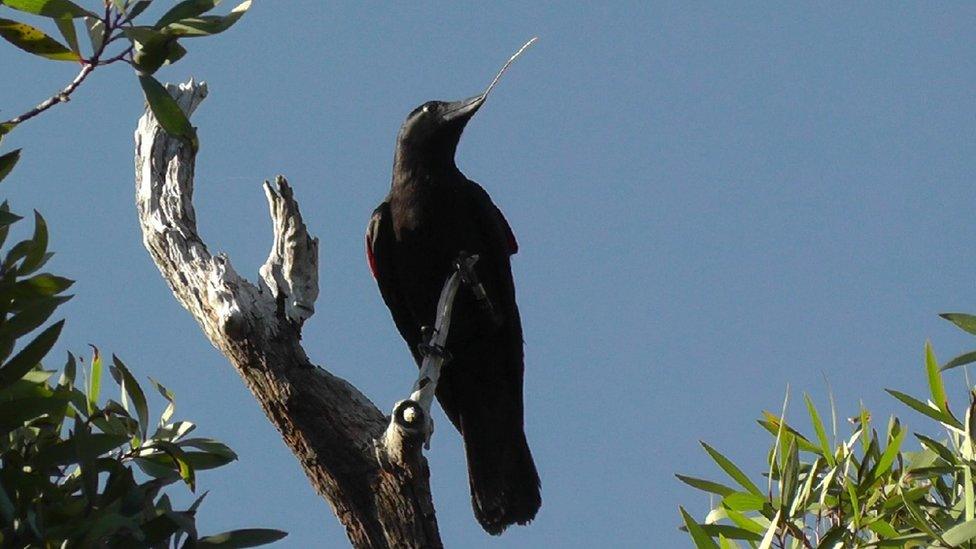Clever crows reveal 'window into the mind'
- Published

Clever, tool-using crows have surprised scientists once again with remarkable problem-solving skills.
In a task designed to test their tool-making prowess, New Caledonian crows spontaneously put together two short, combinable sticks to make a longer "fishing rod" to reach a piece of food.
The findings are published in the journal Scientific Reports, external.
Scientists say the demonstration is a "window into how another animals' minds work", external.
How do you test a bird's tool-making skills?
New Caledonian crows are known to spontaneously use tools in the wild. This task, designed by scientists at the Max Planck Institute for Ornithology in Seewiesen, Germany, and the University of Oxford, presented the birds with a novel problem that they needed to make a new tool in order to solve.

Scientists designed the puzzle box specifically to test the crows' tool-making skills
It involved a "puzzle box" containing food behind a door that left a narrow gap along the bottom. With the food deep inside the box and only short sticks - too short to reach the food - the crows were left to work out what to do.
The sticks were designed to be combinable - one was hollow to allow the other to slot inside. And with no demonstration or help, four out of the eight crows inserted one stick into another and used the resulting longer tool to fish for and extract the food from the box.
"They have never seen this compound tool, but somehow they can predict its properties," explained one of the lead researchers, Prof Alex Kacelnik.
"So they can predict what something that does not yet exist would do if they made it. Then they can make it and they can use it.
"That means that the standard idea that animals try everything at random and improve by reinforcement - that's not enough," he added.

New Caledonian crows make and use tools in the wild
"The finding is remarkable because the crows received no assistance or training in making these combinations, they figured it out by themselves," added Auguste von Bayern, who designed the study.
Why are scientists putting these birds to the test?
"To understand how a mind other than ours can work is a major intellectual challenge," said Prof Kacelnik.
"On its own it's fascinating."
A previous study revealed that crows make hooks to fish for food - evidence of technological development
And this study, he added, has reinforced the evidence that the crows have "highly flexible abilities" that allow them to solve novel problems very quickly with tools they have never seen before.
The researchers suspect that the crows might do this by envisaging a simulation of the problem in front of them - playing out different actions in their brains until they figure out the solution.
Dr Amanda Seed, from the University of St Andrews, described this as a "really striking finding".
"It raises lots more interesting questions concerning mental simulation abilities in these birds," she told BBC News, "questions we can also ask of apes and young children [to understand more about its evolution]."
The problem-solving demonstrations could also help in the development of artificial intelligence in robots - to discover ways to build machines that are also able to reach "autonomous creative solutions" to new problems.
"We are [working with engineers] to give robots the same problems we give the birds," said Prof Kacelnik.
"Imagine the possibility of building artificial intelligence that can actually want what you are interested in doing, and can achieve it by a means that you haven't thought of before."
He cited the example of an earthquake and a robot designed to "want" to rescue people from a collapsed building, having the capability to work out ways to make that happen.
"The animals give us the mountain that we have to climb," Prof Kacelnik explained. "We know a task can be done because the animals have shown us that."
- Published22 January 2018
